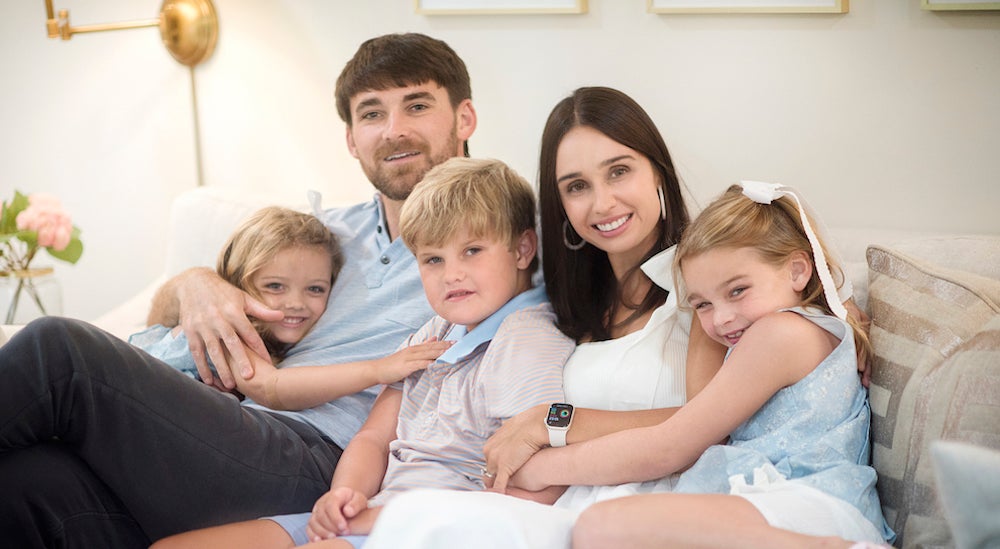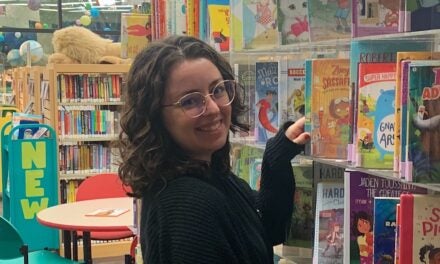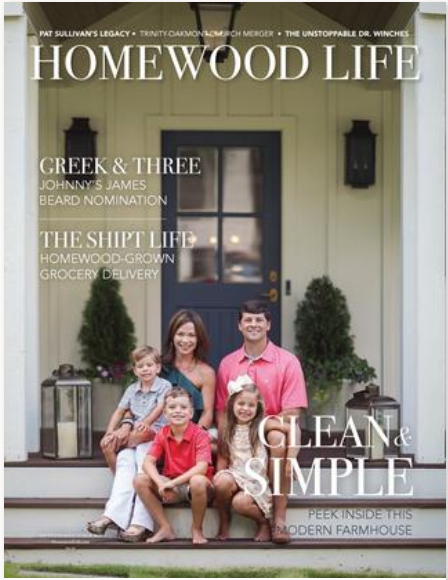By Anna Grace Moore
Photos by Lauren Ustad
One in 41,000. JohnWesley Holley just happened to be that one among thousands. This beautiful nine year old will charm you with his heart of gold. One can’t help but smile thanks to his infectious laughter, especially when he bounces on his trampoline. He may be nonverbal, but he communicates in other ways.
His happiness exudes as he swings back and forth in his new hammock swing, pointing his toes to the sky. His curiosity takes over him as he gently presses his palms to his cowhide rug- one silky enough that it feels gracious against his skin. Looking around his bedroom, JohnWesley has a world all to his own. One made possible by Christopher Kids.
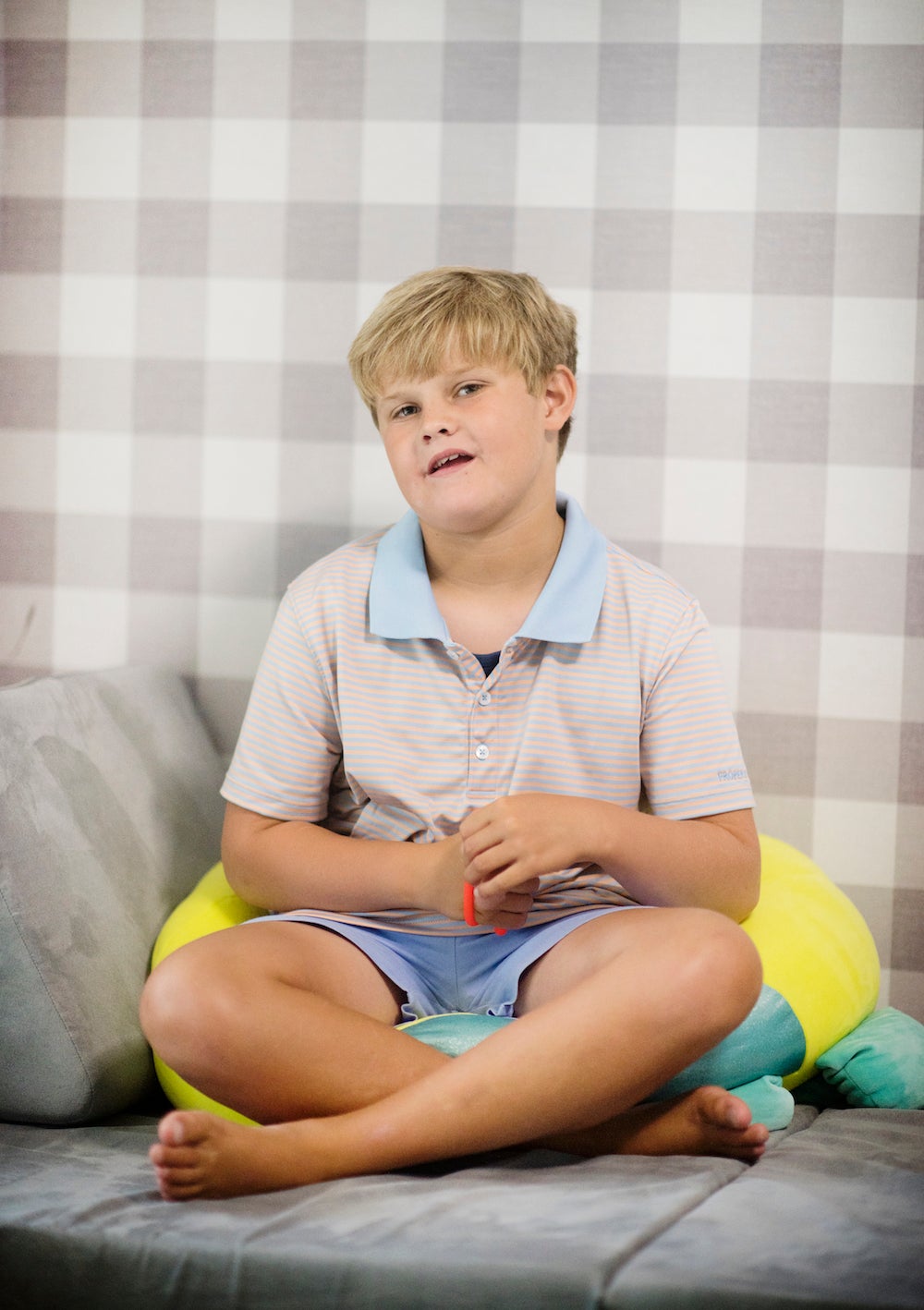
Pitt Hopkins Syndrome
Nearly a decade ago, JohnWesley’s mother, Stephanie Holley, noticed her son displayed some developmental delays when he was just seven months old. After numerous pleas for medical professionals to diagnose her son, she finally found one who recommended genetic testing for an array of conditions that normal checkups wouldn’t identify. Thus, the culprit, Pitt Hopkins syndrome, officially had a name known to the family.
Pitt Hopkins syndrome is a genetic disorder that can be characterized with developmental and intellectual delays, epilepsy, vision problems, breathing difficulties and more. It is considered so rare that today there are only 5,000 known cases in the world. When JohnWesley was diagnosed, there were only 500 cases known.
“At UAB, before a child has an MRI, the hospital recommends genetic testing because recent studies have shown that studying genome frequencies can reveal rare disorders otherwise unknown to the patient or unseen in tests such as MRI’s,” Stephanie explains. “[Pitt Hopkins] is super rare, but doctors also think perhaps the disorder isn’t rare and that some who are affected may not know they have it because it can only be accurately diagnosed through genetic testing, which is expensive and [only recently made available].”
Once JohnWesley was diagnosed, Stephanie immediately looked to the community for help. What was she going to do with a 13-month-old baby who has a condition that not many know how to help with, she thought? A friend referred her to The Bell Center, which is a nonprofit that helps children with special needs up to three years of age progress developmentally.
Stephanie recalls feeling isolated before moving to Homewood. She says they would “move anywhere. We just [wanted] to know where we need to live for this child to have the best services. We can’t imagine living anywhere else.”
Miracles, she says, never cease. While most who have Pitt Hopkins never walk, JohnWesley can, much to the dedication of specialists at The Bell Center. Although he is limited physically, as in he cannot feed himself or dress or use the bathroom, one can easily overlook those setbacks because of his exuberant personality.
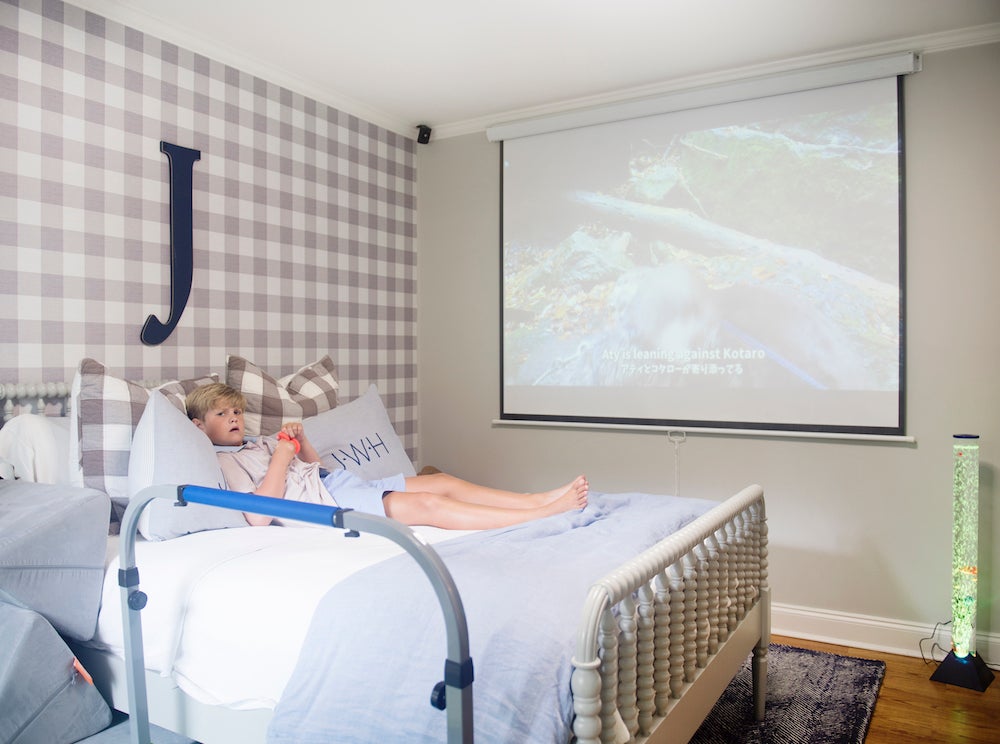
The Need for a Diagnosis
Learning to live, not just survive, with any condition can be difficult. Pitt Hopkins is classified on the autism spectrum, but it is not to be associated simply with the more commonly known socialization struggles often those with autism deal with on a daily basis.
“A lot of times children with autism are diagnosed based on subjective testing,” Stephanie says. Nowadays, scientists are discovering some forms of autism can be revealed through genetic testing. “Even children with down syndrome may have Pitt Hopkins syndrome, but they may have never received testing for it.”
Because this syndrome is often misdiagnosed, affected children more likely than not will not receive the help they need to live long, prosperous lives.
“Autism is so misunderstood because a lot of the children that you would see with autism are going to be less severe because it’s feasible for them to be out in the community,” Stephanie explains. “The ones that are nonverbal and that have such sensory issues, [where] the brightness of light can put them in a full on rage where they’re throwing chairs at their parent, you’re not going to see those individuals [in public as often]. So, those parents kind of suffer in silence. A lot of times you don’t see how severe it can be.”
She also notes that children who are nonverbal cannot communicate pain or discomfort as effectively as children who can talk can.
“Sometimes when you think your child has autism, and they’re nonverbal, they can’t tell you, ‘my stomach hurts,’” she says. “You don’t know to be on the lookout for seizures. But if you know they have Pitt Hopkins syndrome, and that they most likely also have these things that they can’t communicate to you, you as a parent can better serve them.”
This is why recent strides in genetic testing are so significant in providing children with resources to live normal lives. Stephanie wanted to advance such resources and founded Undefined, which is a nonprofit that connects families of children with special needs to businesses in the community who can help. One of her friends referred JohnWesley to Christopher Kids, who was one such business, looking to make a difference in the lives of others.
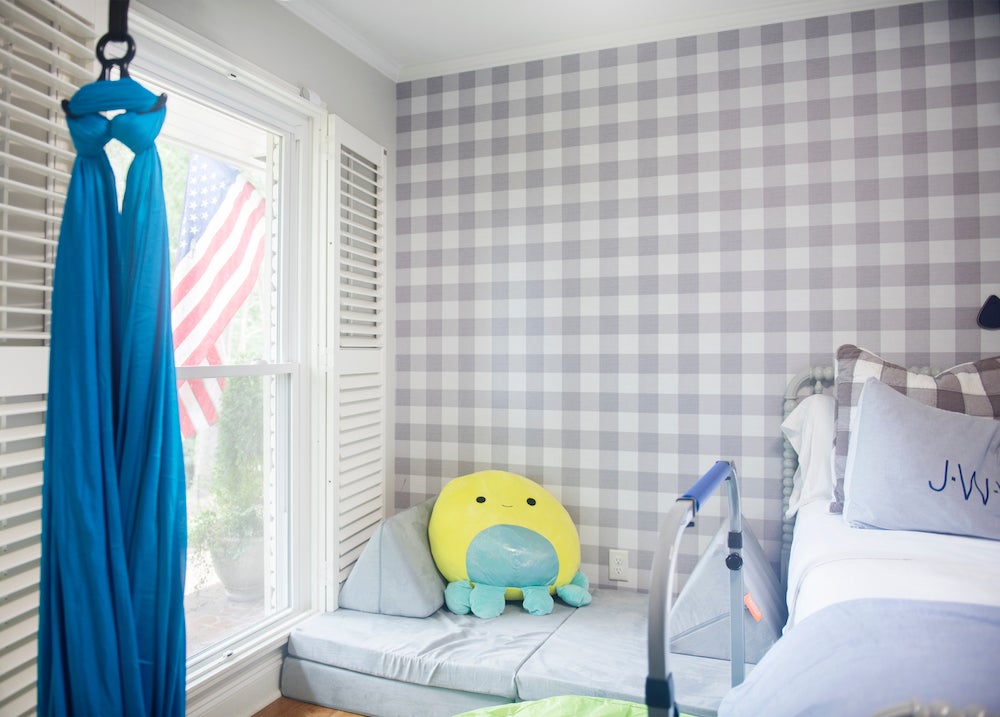
Christopher Kids
After graduating from Auburn University with a degree in architecture, Chris Reebals set out on a journey to find his calling. While he enjoyed making the functional also beautifully aesthetic, he often thought his purpose was to do more. To do what, exactly, was the question.
Chris worked in ministry at Briarwood Presbyterian Church before developing Christopher Architects that has now grown to Christopher Architecture and Interiors. In 2020, he decided to form a nonprofit, Christopher Kids, whose sole purpose is to reinvent and redesign living spaces to be more accessible for children with severe conditions.
According to its website, Christopher Kids is “dedicated to serving children ages two to twelve in the Southeast [who’re] facing chronic or critical illness, physical and intellectual disabilities and other life altering challenges by creating a retreat designed to fit each recipient’s unique accessibility needs.”
Chris hired Caroline Thomas, who is Christopher Kids’ executive director, and Hallie North, who is the organization’s development director, to spearhead the mission to create for kids in need.
“It makes me so incredibly happy to provide a space for children, who are facing different challenges in their own home,” Hallie says. Hallie feels especially connected to the organization’s mission through her niece that has down syndrome. “I saw the process my sister went through, struggling to find the right ‘everything.’ There are always little details that she needed at home that she was having a hard time finding.”
Caroline worked previously with Make-A-Wish Foundation in New York City and was thrilled at the opportunity to give back to such a diverse community. Her first day at Christopher Kids was actually the first day employees were allowed to return to the workplace after the pandemic’s onset.
Caroline says one thing she appreciates most about Christopher Kids is that while some organizations are limited to work only with children who have terminal illnesses, Christopher Kids serves a more diverse population, including those with chronic illness, cognitive delays and other life altering challenges.
The nonprofit can bless so many because of its wonderful community support. Although the firm’s architects may draw up plans for redesign and the designers may make the rooms “pop,” tons of Birmingham businesses will without question donate their time and efforts to blessing these children.
The best part, however, is that the families who are blessed never pay a dime.
“We pay for the room out of the funds that we raise,” Caroline explains. “We’re very lucky to have vendors donate their time and products to our projects.”
And, nothing is ever done half-way. “We want to grow, but we’re careful to grow sustainably where our families are receiving the time and the attention they deserve,” Caroline says. “We’re proud to conduct a small number of projects each year to the best of our ability. We want to have the appropriate time and energy to pour over every detail and go back and forth with the parents.”
Because each room will be perfect, personalized and pretty, too, Christopher Kids’ work is much more than slapping some paint on the walls. During each project, the team works closely with the family and even reaches out to local nonprofits to see how to best create a room fit to each child’s unique needs.
“We did a project for a little boy receiving therapy at Mitchell’s Place, and we were able to collaborate with their team for personalized recommendations. We asked, ‘What’s working? What’s not? What does he like? How can we make this space the best room for him?’ Those are the conversations and partnerships we want to continue moving forward,” Caroline says.
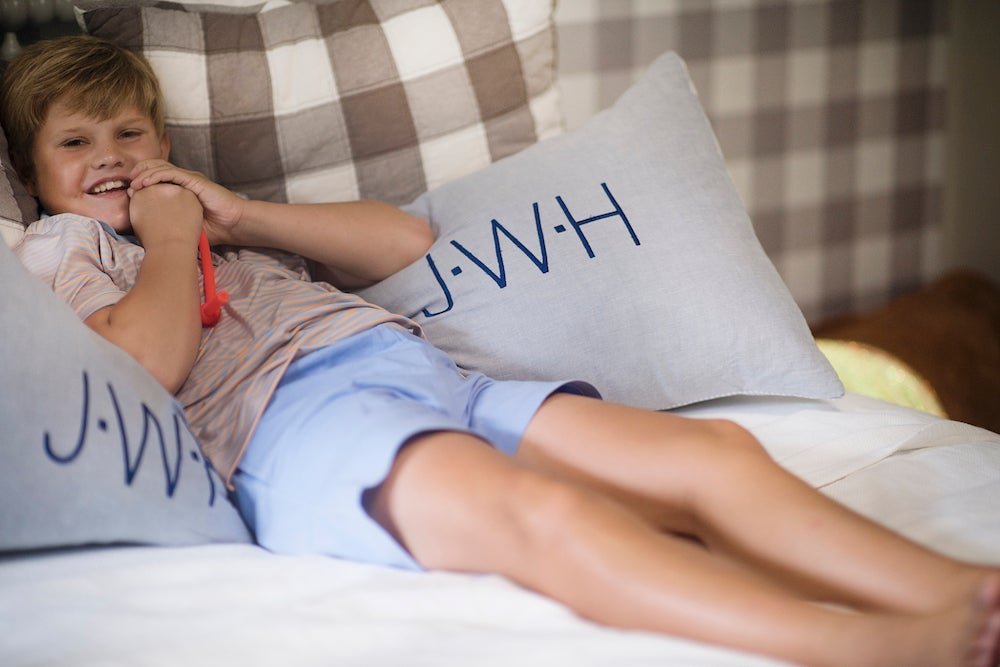
A World of His Own
Once JohnWesley was referred to Christopher Kids, the team set off on a mission to create not just a habitable abode, but also a place where he could thrive.
“They gave him a place where he can have joy,” Stephanie says, tearfully. “It’s a place where he can feel comfortable, safe and happy. He has his own trampoline. It’s so nice because it can fold down, and you can push it under the bed. It’s never gone under the bed because it’s just used 24/7. He’s really into movies and music. Now, he has the projector facing this whole big wall. So, he jumps on the trampoline while watching a movie. They put up these amazing speakers way up high in the corners, so we could play music through those.”
Other amenities in JohnWesley’s new room include a light-up, indestructible disco-cube and new bookshelves. Everything “fits like a puzzle.”
“We want [the rooms] to grow with them and be aesthetically pleasing because medical equipment a lot of times is scary looking,” Caroline explains. “We want it to be a kid’s space and a retreat and function for them in that way. We want it to be about everything you’re not really looking at first.”
She also notes that through Christopher Kids, the talent of making the functional beautiful is one that is repaid over and over again.
“I mean there aren’t words,” Stephanie says. “You’re just so thankful that somebody saw the value in doing something like this for kids and for families. As a parent, that’s all you hope is that somebody sees your child, even though he can’t talk and he’s so limited in all these things. [There’s hope] that he’s still seen as a person with interests and preferences and opinions. He needs a space, too.”
Because of Chris’ dream to “do more,” children and their families are being served in the Birmingham community. Children, who like JohnWesley, just need someone to go the extra mile to help create a place where he can be himself.
Perhaps if everyone with a dream can be inspired to do something more, blessings, as Stephanie says, will never run dry.
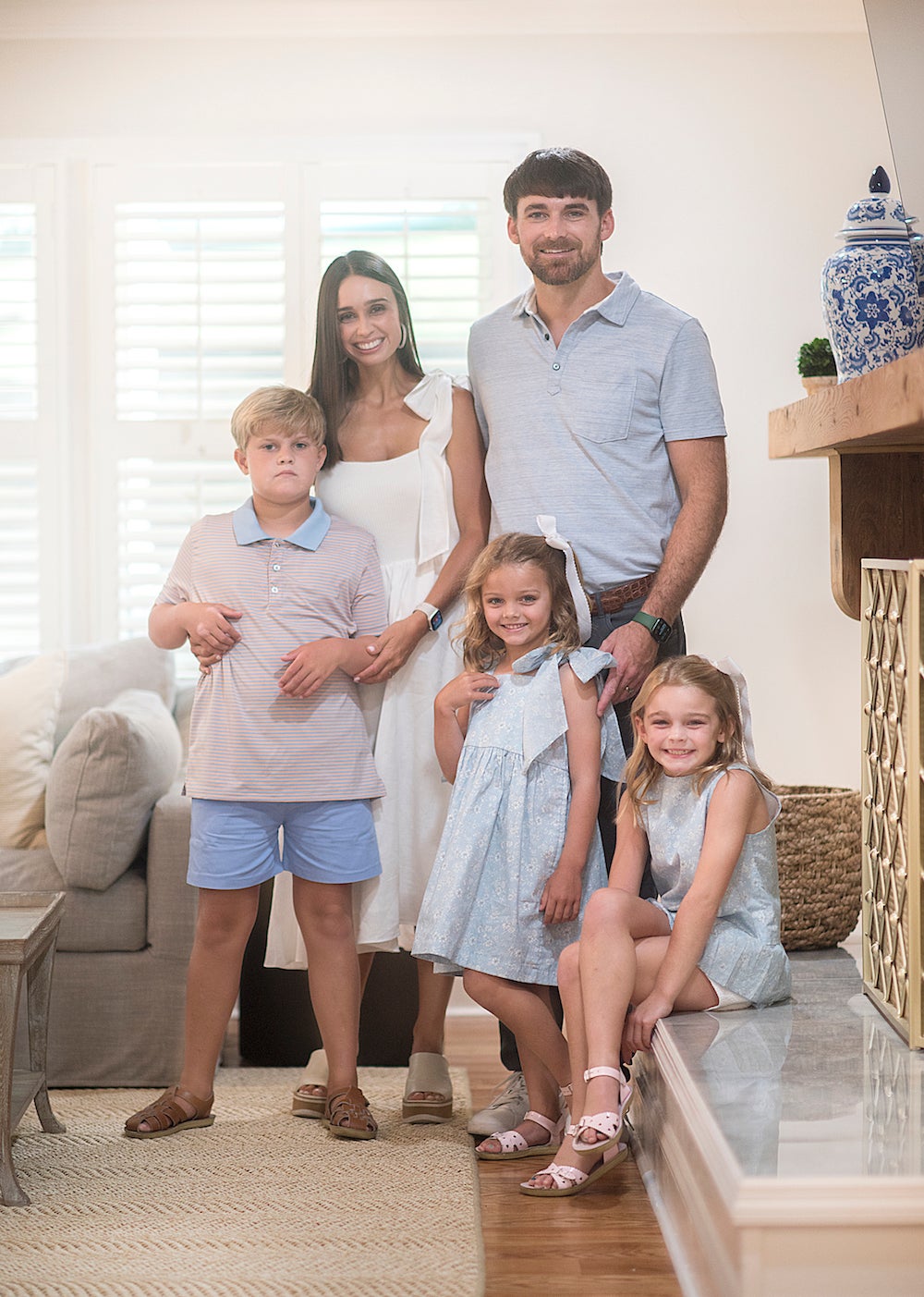
To refer a child to Christopher Kids, learn more information or become a partner, visit Christopherkid.org.
If a child is exhibiting developmental or intellectual delays, his family can contact The Bell Center, which can be reached at 205-879-3417. The Pitt Hopkins Research Foundation, too, is founded to help affected children progress to live long, prosperous lives. If one thinks someone needs to be tested for Pitt Hopkins syndrome, he can visit pitthopkins.org for more information and to receive help.

